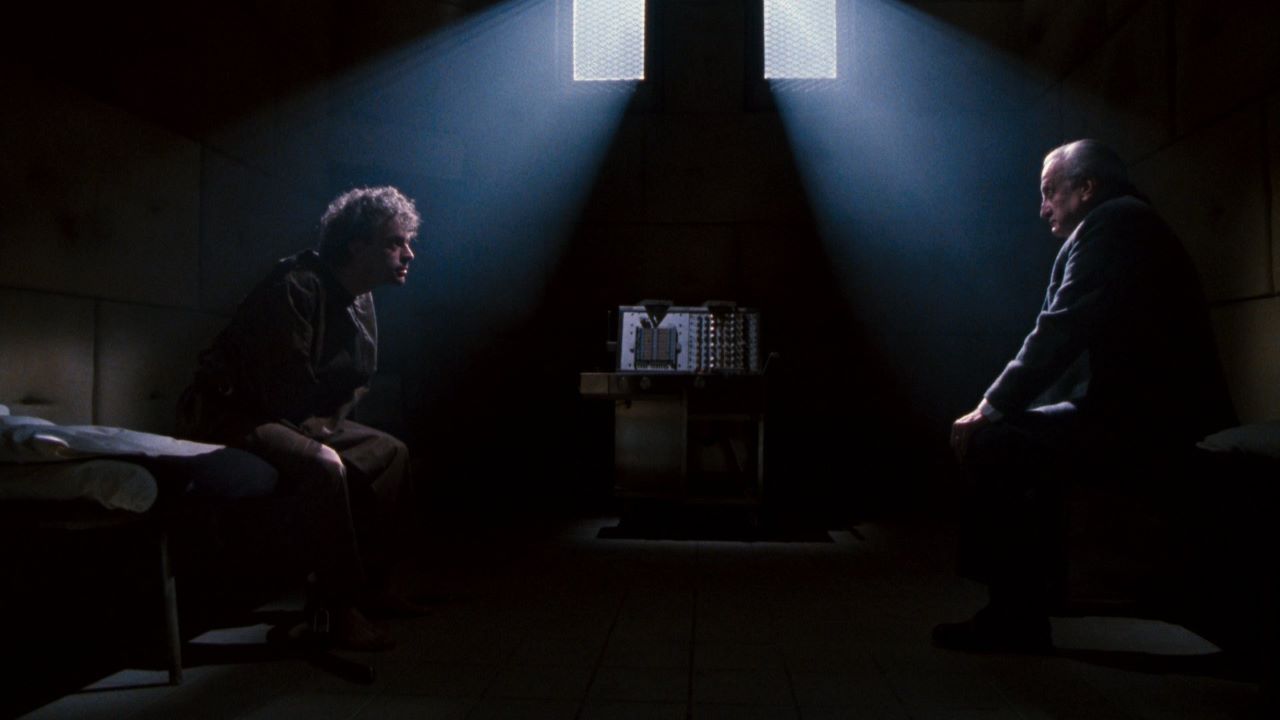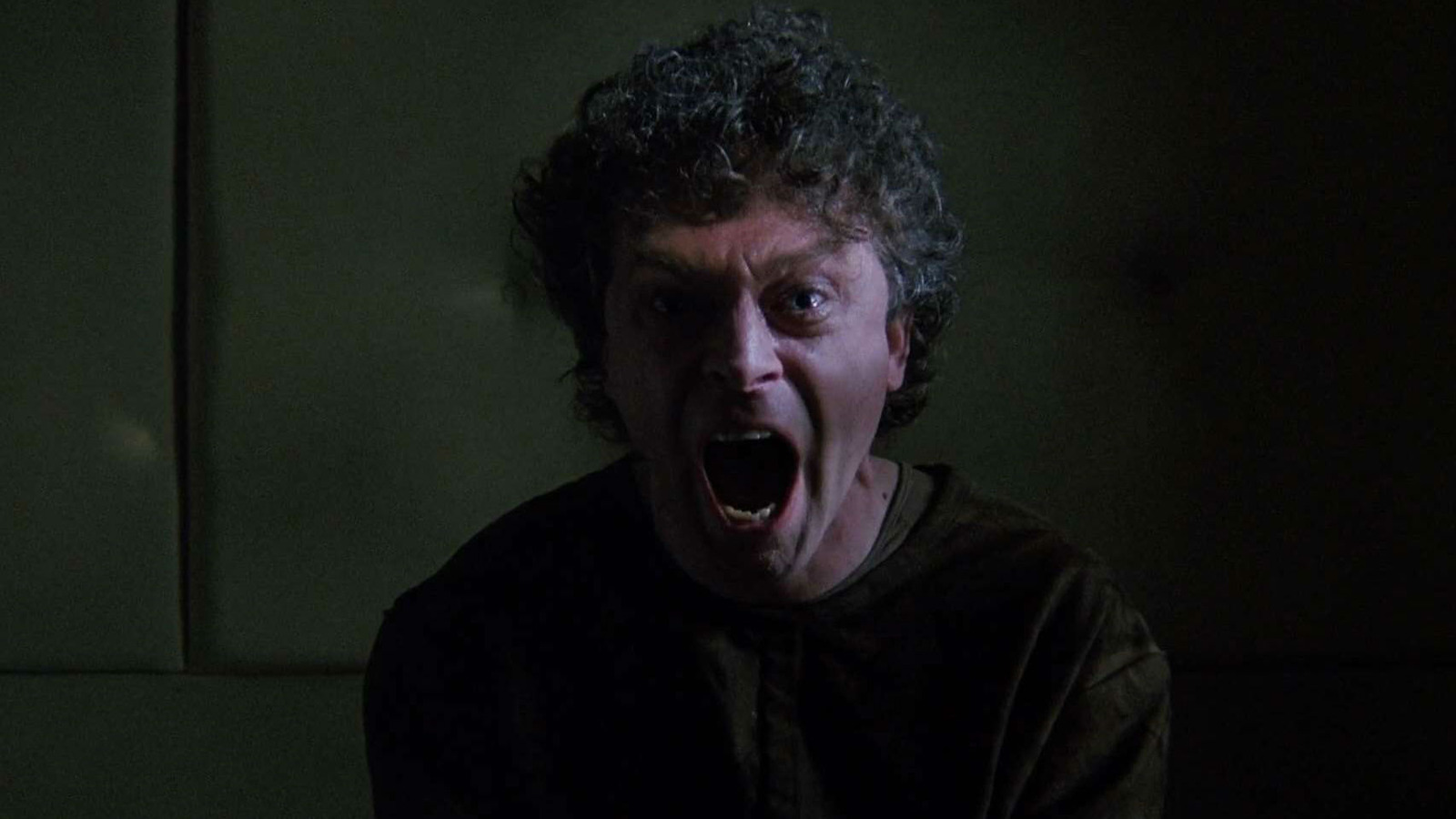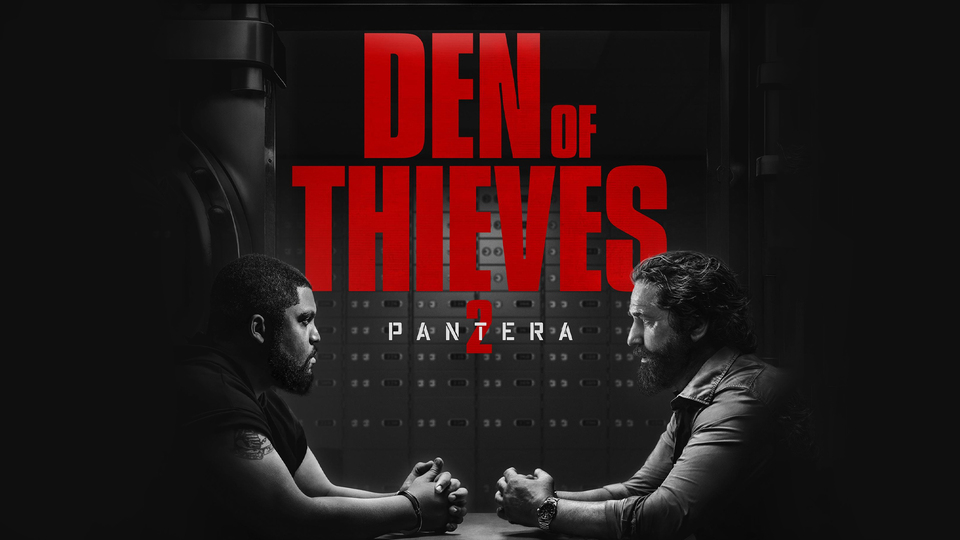Genre: Horror | Supernatural | Thriller
Directed by: William Peter Blatty
Starring: George C. Scott, Brad Dourif, Ed Flanders, Jason Miller
Based on the novel Legion by William Peter Blatty
Studio: 20th Century Fox / Morgan Creek Productions

More than a decade after the original Exorcist shocked the world, The Exorcist III arrived in 1990 with far less fanfare—but far more psychological depth, chilling atmosphere, and intelligent horror than most sequels ever dare to attempt. Directed by the author of the original novel and screenplay, William Peter Blatty, this third installment is a bold, cerebral, and haunting experience that has earned cult status over time.
Set fifteen years after the events of the first film, The Exorcist III follows Lieutenant William Kinderman (George C. Scott), who is investigating a series of gruesome, ritualistic murders in Georgetown. The killings mirror the M.O. of the Gemini Killer, a notorious serial murderer who was executed years earlier.
As Kinderman's investigation deepens, he discovers a patient in a psychiatric hospital who looks nothing like the deceased Gemini—but claims to be him, with terrifying details. Even more disturbing: the man (played chillingly by Brad Dourif) may be possessed by the spirit of the killer—and something much worse.
George C. Scott delivers a powerhouse performance as Kinderman, grounding the film in gravitas and emotional weight. His portrayal of grief, skepticism, and moral exhaustion makes the character deeply compelling.
Brad Dourif, however, is the standout. His chilling monologues as the Gemini Killer are theatrical, disturbing, and hypnotic—filled with quiet menace and explosive madness. Dourif’s performance alone elevates the film to horror excellence.
Jason Miller, reprising his role as Father Karras (in a limited but eerie capacity), adds a tragic spiritual dimension to the film’s mystery.
Blatty’s direction is measured, elegant, and incredibly atmospheric. Rather than leaning into gore or visual effects, he builds tension through dialogue, long takes, and oppressive silence. The infamous "hallway jump scare" is considered one of the greatest in horror history—not because of what is shown, but because of the slow, meticulous buildup.
The film balances horror with existential and theological themes: What is evil? Where does faith fit in a broken world? Can justice exist in the presence of pure malevolence?
-
Faith vs. doubt
-
The persistence of evil
-
Psychological trauma
-
The duality of man and the illusion of control
It’s a horror movie that dares to make you think, not just scream.
-
Masterful performances by Scott and Dourif
-
Intelligent, thought-provoking script
-
Atmospheric tension and minimalistic horror
-
Brilliant use of sound and editing
-
One of the most terrifying jump scares ever filmed
-
Studio interference led to reshoots and a more conventional ending
-
Occasional pacing issues in the second act
-
Feels disconnected from the original Exorcist in tone (which may disappoint purists)
The Exorcist III may not have the shock value of its predecessor, but it excels in psychological tension, sharp dialogue, and philosophical horror. It’s an underrated masterpiece that rewards patience and attention, delivering existential dread rather than simple scares.
If you appreciate horror that respects your intelligence—and chills you to the core—this is a must-watch.




